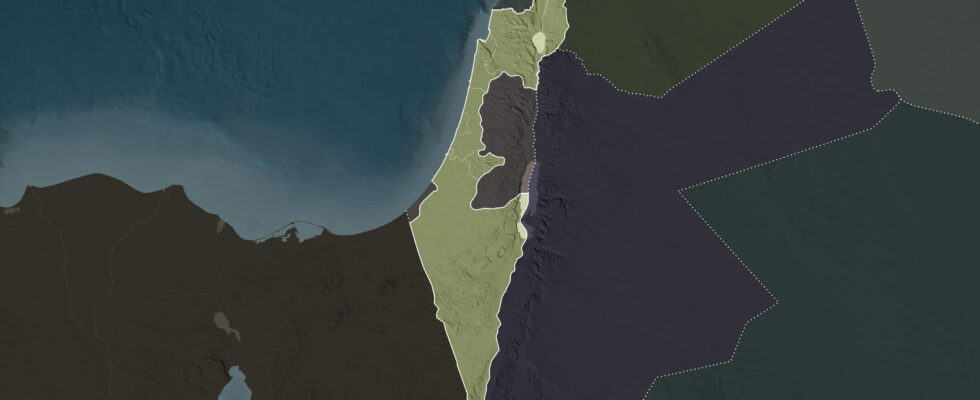While a ceasefire agreement has been signed in the Gaza Strip, the question of the creation of a Palestinian state could quickly become a priority for international diplomacy.
This Wednesday, January 15, Israel and Hamas accepted an agreement for a ceasefire in Gaza, putting an end to a year and a half of war. This agreement is expected to come into force on January 19. During a first phase, 33 Israeli hostages should be released in exchange for Palestinian prisoners. Israeli troops should also withdraw from the east of the Palestinian enclave. The next phase will be, according to Joe Biden during a press conference, “a permanent end to this war”, which will include an exchange of hostages and the total withdrawal of troops. The details of this second phase remain to be negotiated. Compliance with the truce agreement will be monitored by Qatar, Egypt and the United States.
If the ceasefire is achieved, what will happen next in the region? If a plan for the reconstruction of Gaza is going to be put in place, the question of the creation of a Palestinian state is already being seriously raised again. The Prime Minister of the Palestinian entity, Mohammed Mustafa, declared this Wednesday that he hoped to maintain international pressure on Israel, which, according to him, had proven through this agreement that it could “bear fruit”, reports Le Figaro. He then believes that Israel “must understand what is just and what is unjust, and that the power of veto over peace and the Palestinian state will no longer be accepted or tolerated,” he added.
Same story on the United States side. American Secretary of State Antony Blinken projected himself this Tuesday into the post-war Middle East. He was in favor of the creation of a Palestinian state: “Israel will have to accept the reunification of the Gaza Strip and the West Bank under the leadership of a reformed Palestinian Authority. All must commit themselves to the path of the formation of an independent Palestinian state, respecting the conditions and deadlines”, he declared.
The creation of a Palestinian state decided in June?
Last December, Emmanuel Macron announced that he would organize an international conference with Saudi Arabia in June 2025 around the question of the creation of a Palestinian state. He announced that he would chair this meeting with the Crown Prince of Saudi Arabia, Mohammed bin Salman. “We hope that in the coming months, together, we will multiply and unite our diplomatic initiatives to take everyone on this path,” indicated the French president, who wishes to “involve several other partners and allies, European and non-European, who are ready to go in this direction but who are waiting for France”. Emmanuel Macron had affirmed his desire to recognize a Palestinian state “at the appropriate time, [c’est-à-dire] where it triggers reciprocal movements of recognition”. With the ceasefire agreement, this opportune moment may have arrived.
The head of state is, in any case, widely supported by the UN and therefore by a majority of member countries. The organization affirmed “its unwavering support, in accordance with international law, for the settlement providing for two States, Israel and Palestine, living side by side in peace and security, within borders recognized on the basis of those of ‘before 1967’. The organization hopes that “the inalienable rights of the Palestinian people, first and foremost the right to self-determination and the right to create an independent state, will be realized.” It considers, in fact, that the West Bank, East Jerusalem and Gaza are currently occupied. This international conference should therefore push Israel to clarify its political line regarding the Palestinian territories.
